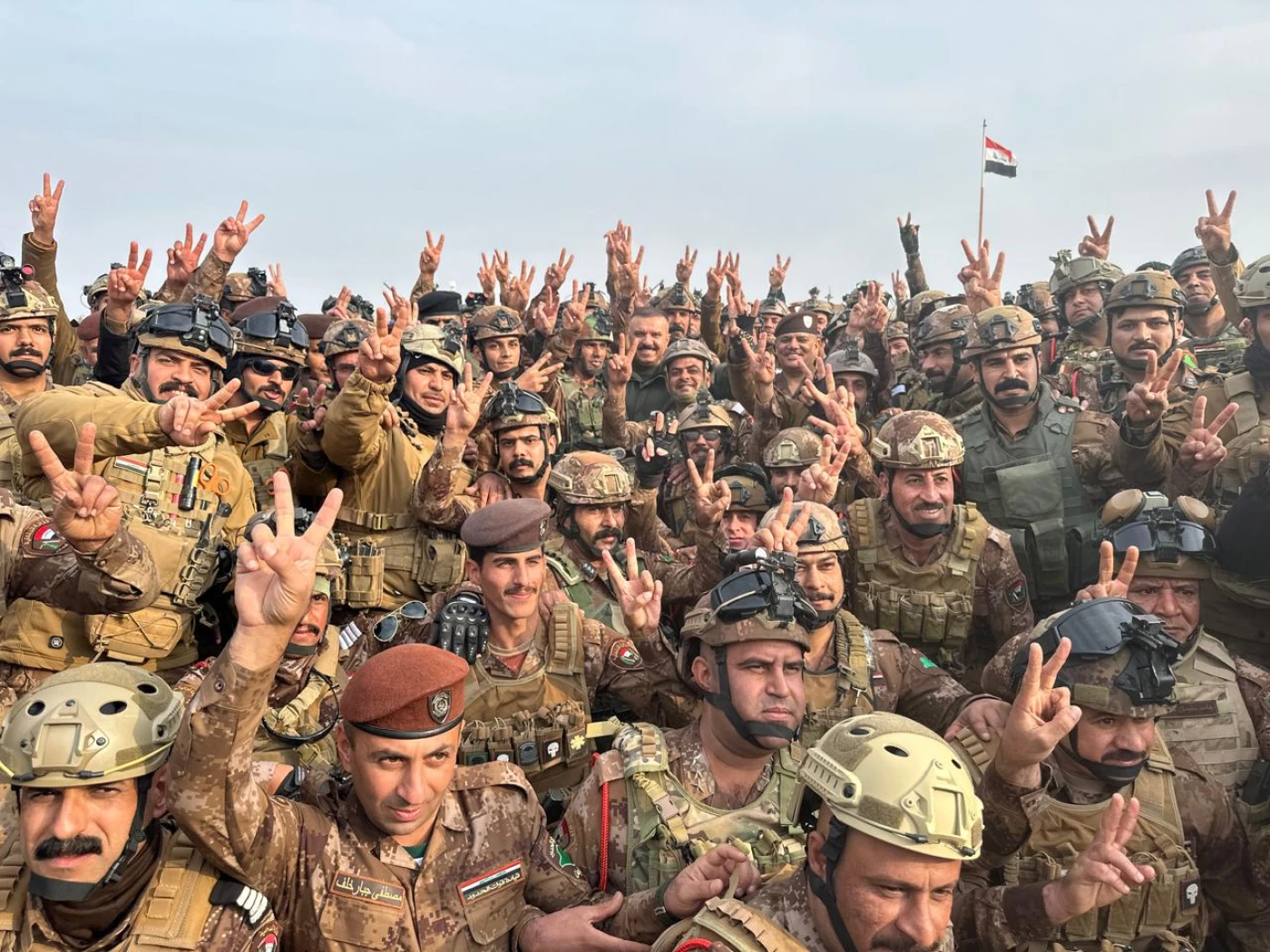ERBIL, Kurdistan Region of Iraq - Hours after the government of Bashar al-Assad was toppled by Syrian opposition groups, Iraqi authorities began efforts to reassure the public of the security of the borders with the neighboring country, conducting field visits and emphasizing that the borders were “heavily fortified.”
Anti-government groups, spearheaded by the Hay’at Tahrir al-Sham (HTS), on Sunday took over the Syrian capital city of Damascus, after nearly a two-week offensive, sending Assad fleeing and ending his 24-year reign.
The lightening offensive of the rebels, led by Islamist factions, sparked concerns among the Iraqi public and authorities over the conflict’s potential repercussions on Iraq. Additional armored units were deployed to fortify Iraq’s international borders in recent days.
“The borders are heavily fortified, and there is a presence of Iraqi border forces, in addition to the presence of army units and Popular Mobilization Forces [PMF],” Iraqi military spokesperson Yehia Rasool told state media on Sunday.
Rasool stressed that the situation at the Iraq-Syria border is “very good” and under control.
Iraqi Interior Minister Abdul Amir al-Shammari visited Nineveh and Anbar on Sunday to examine the security situation at the border strip.
“The border strip is fully secured by the Border Forces Command and there is an excellent system of barriers in addition to the control and monitoring system,” said Shammari during a presser.
“The border has been reinforced with additional units from the army and the PMF, which have held a second line of defense,” he added.
State media reported earlier in the day that Iraq’s embassy in Damascus has been evacuated following the overthrow of the Assad regime. The diplomatic mission’s staff have reportedly been moved to Beirut for their protection, according to a well-informed Iraqi government source, who spoke to The New Region on condition of anonymity.
The Iraqi transport ministry also announced temporarily suspending all flights between Baghdad and Beirut in light of the security developments in neighboring Syria “which is the main air corridor for these flights.”
The opposition's self-proclaimed Syrian Salvation Government (SSG) last week issued a statement assuring the people and government of Iraq that they do not pose a threat to Iraq or other countries in the region, adding that they are committed to strengthening "brotherly ties" with Baghdad and working toward shared interests, which it said required “continued cooperation and understanding” between the two sides.
In a private parliament session on Wednesday, Sudani stated that Iraq will not “stand by and watch” what is happening in Syria, but emphasized that they do not want to drag Iraq into a war that would compromise the political process in the country and “take 45 million [people] into the unknown.”
"There is a lot of concerns and delusions among Iraqi politicians that what is happening in Syria will spill into Iraq. I say, decisively, that this is 100 percent false," said HTS chief Ahmed al-Shar’a, also known as Abu Mohammed al-Julani, in response to Sudani’s comments.
“Just as Iraq and Mr. Mohammed Shia’ al-Sudani succeeded in evading the war between Iran and the region in recent times, we would appreciate if he also manages to keep Iraq out of a new war with what is happening Syria,” he added.



 Facebook
Facebook
 LinkedIn
LinkedIn
 Telegram
Telegram
 X
X


